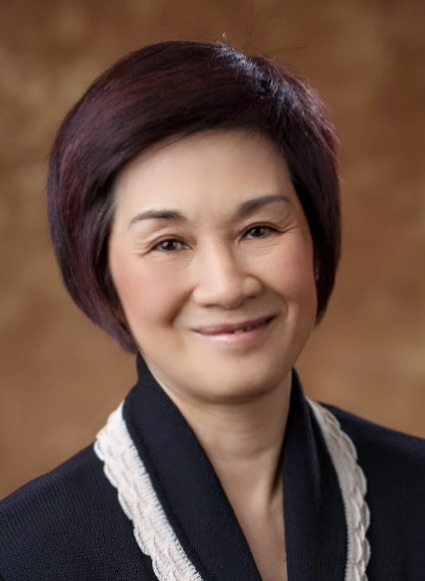Note: This story is part of a series that Bill Moor is writing for Clay Methodist Church on some of its members’ lives, including their spiritual journeys.
Vicky Warkentien’s mother was a music teacher and she told her piano-playing daughter, “You only have to practice on the days you eat.”
So, of course, she practiced, practiced, practiced.
Even on days when she had been in school for 12 hours … even when the lights had been shut off in the house … even when the bullets were flying outside.

Vicky grew up in Saigon during the Vietnam War. “I was able to grow up Christian and I put my faith in God because life was fragile,” says the Bethel University music professor whose father was Vietnamese and mother was Chinese.. “Sometimes, I saw bodies in the street. We always wanted to avoid crowds because you never knew which way the Viet Cong might be shooting.”
Despite all the uncertainty and chaos, Vicky — then called Hong-Van Tan — was usually able to attend her three schools each day. Yes, three schools.
“I went to a Chinese school in the mornings because my mother raised me in the Chinese culture, a French and Vietnamese school in the afternoons where they taught science and math in French and the conservatory in the evenings,” she says. “I was in school from 8 a.m. until 9:30 p.m.”
And at home, Vicky was often on the piano — until the shooting started and the lights went out. Then she hid in the sandbag haven set up in her house . She would pass the hours by practicing on a newspaper on which she had drawn the piano keys and punched holes where the black keys were. That way, so she could feel their location with her fingers even in the dark.
She was 11 In 1968 — the height of the war— when her parents divorced. Her mother and older brother immigrated to the United State to keep him out of the military. Vicky stayed and lived with her grandmother.
She graduated from high school in 1975, the same year that Saigon fell. “God carried me through all of that,” she says “You couldn’t go to church then and you couldn’t trust anyone because even your neighbors might be Communists but kept it hidden. You could only trust God.”
Vicky had to work for the Communists — but at least it was in the conservatory as an accompanist. “If you wanted rice, you had to work. The dance ballet company had been assigned sugar and so I worked for them, too.”
Fortunately, she was able to go to France and study after a French family sponsored her. And then in 1978, she got the opportunity she had waited for — to immigrate to San Francisco and reunite with her mom, Molly, and brother, John. She hadn’t seen them in 10 years.
Her mother gave her American name of Vicky. “She chose Vicky because it reminded her of Victoria and victory,” she recounts. “Coming to America was a big victory in my life.
“I felt freedom and could finally breathe fresh air.”
She went to San Francisco State University and earned a Bachelor of Music degree in Piano Performance. She then earned a Master of Church Music in conducting at Golden State Theological Seminary. Two important events happened while she was there: She became a U.S. citizen in 1984 and she met David Warkentien, her husband now for 36 years,
“That’s how I received my last name of Warkentien,” she says with a smile about her very un-China-like name.
They lived in Rochester, New York, for several years where David was a vice-president in sales and marketing and then two years in Perth, Australia. They returned to the U.S. in 2000 and Vicky earned her Doctorate in Church Music Ministry in conducting and piano performance at Southern Baptist Theological Seminary in Louisville.
They eventually ended up in the MIchiana area where Vicky taught music for a few years at Valparaiso University and at Bethel as an adjunct professor. She went full-time at Bethel in 2004.
She certainly stays busy at Bethel. She is the director of the concert choir and chamber orchestra along with her class load. She also is the choir director at Clay Methodist Church.
Vicky loves what she does. “I love to see the students come in so young and then watch them grow and go out and take jobs in music,” she says.
In the pre-Covid summers, she would go to China and southeast Asia to teach church music. She is also on an international team of the World Association for Chinese Church Music and the Chinese Christian Church Music Institute for Worship to teach and translate church music resources into Chinese.
She can’t be any happier about how her life has turned out and her partnership with God. “I’m so fortunate, so happy, so lucky,” Vicky says. “I think I’m spoiled.
“And best of all, I have the freedom to make music every day.”
